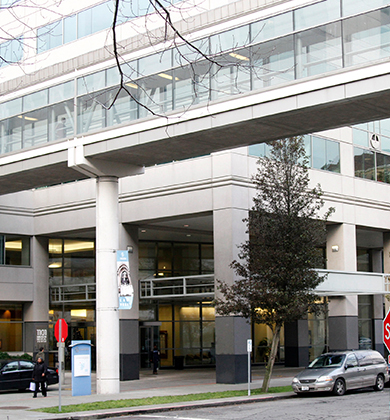Preoperative Visit
A preoperative visit is typically scheduled within a week or two of your rhinoplasty procedure. This visit helps to ensure a safe and successful outcome. Several issues are discussed at this visit.
Rhinoplasty goals
The cosmetic goals of your rhinoplasty will be reviewed on your pre-rhinoplasty visit and the plans will be solidified. Your medical photographs and digital morphs provide a great point of reference for this part of the conversation. This is also a chance for you and Dr. Lamperti to prioritize your desires and goals so that your rhinoplasty outcome as successful as possible.
Decision to use grafts
Dr. Lamperti will discuss the likelihood of cartilage grafting with you. Typical sites for rhinoplasty grafts include the septum, the ear, or the rib. The septum is by far the most common site for harvesting cartilage. In some cases irradiated cadaver rib cartilage may be required for surgery. If there is a chance for this Dr. Lamperti will discuss this option further with you. If ear cartilage may be needed, Dr. Lamperti will also discuss with you your preference as to which ear cartilage will be harvested from.
Medical History
To ensure a safe surgical procedure, a thorough medical history is taken to make sure that you don't have any medical conditions that may pose a problem to during your rhinoplasty procedure. Your current health history as well as your medications and drug allergies will be reviewed.
Medications and Supplements to avoid
There are several types of supplements, prescription medications, and over the counter medications that can thin your blood and increase your risk of bleeding. Aspirin, excedrin, ibuprofen, motrin, aleve, advil, naprosyn and vitamin E supplements are some common medications to avoid starting 10-14 days before surgery and extending 10 days after surgery. Similarly, Fish oil, echinacea, ginseng, ginko biloba, and St. John's wort are some of the herbal medicines that can affect your clotting ability as well. You can find a more complete list of medications to avoid before your rhinoplasty surgery here.
Rhinoplasty Risks
Dr. Lamperti will also review the risks of rhinoplasty surgery with you during your preoperative visit. Some of these risks of rhinoplasty surgery include bleeding, infection, reaction to the anesthesia, asymmetry, numbness, poor healing or scarring, need for further surgery.
Surgery Consent
After reviewing the surgical plan and discussing the potential risks of surgery Dr. Lamperti will also review and have you sign the surgical consent.
Prescriptions
To help ensure a comfortable and safe recovery you will also receive several prescriptions for use after your rhinoplasty. These typically include:
-
Antibiotic to help prevent an infection.
-
Pain medication: typically percocet (tylenol with oxycodone), vicodin (tylenol with hydrocodone), or tylenol with codeine. Not all rhinoplasty patients require narcotic pain medication after surgery and in fact some just take over the counter tylenol after surgery.
-
Optional anti-anxiety medicine to help you relax the night before your procedure.
Go with quality. Go with your gut. And at the very least, get a consultation with Dr. Lamperti
MC - Seattle, WA View More Patient Testimonials ›Schedule your In-Office or Virtual Consultation with Dr. Lamperti
Thomas Lamperti, MD personally performs all in-office and virtual consultations where you will be able to learn about your customized cosmetic or reconstructive surgery options.



